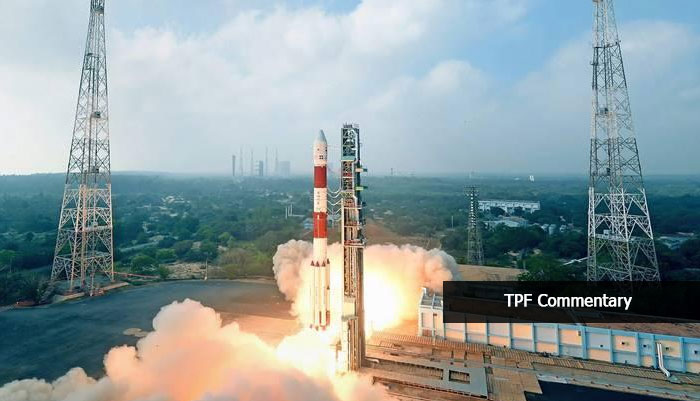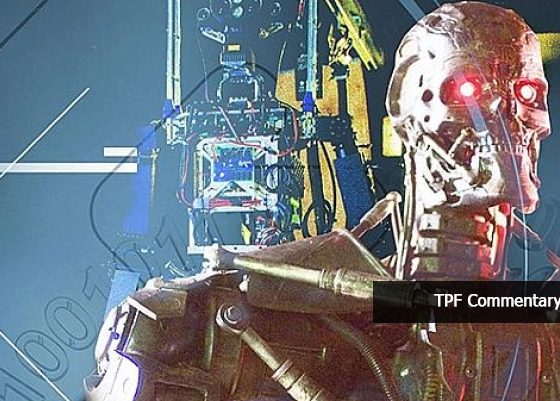In the 21st century Space Security is rapidly emerging as a critical component of the National Security architecture. Today, space has emerged as a major instrument for the human survival. Very many activities associated with humans day to day leaving are depending on the satellite technologies directly or indirectly. Owing to increasing emphasis on space technologies space industry is also found making rapid growth. At the same time space has obvious utilities for the militaries too for the smooth and fast conduct of their various operations. Unfortunately, space is also emerging as a potential battleground with the possibility of confrontations both on the earth and also in the outer space. Naturally, for the states with significant amount of assets positioned in space as well as for the states having dependence on space technologies, it becomes imperative to evolve a specific policy structure to address issues concerning space security. This article attempts to discuss a need of such framework for India.
NecessityIndian space programme is civilian in nature and existing space structures has been evolved essentially to cater for such requirement. Presently, Space Commission is responsible for growth, development, sustenance and furtherance of India’s space programme. There is no specific defence element involved with this structure. Hence, appreciating the military needs and also to allow ISRO to continue with its civilian mandate, it has become necessary to have a separate commission for handling strategic requirements. For this purpose a Military Space Commission needs to be established.
Such commission could oversee all space security aspects. Under this commission a specific agency could be established for coordinating activities of various stakeholders and liaise with various agencies of (civilian) Space Commission. Such agency could suggest modifications in exiting policy architecture as found necessary from time to time and also establish an experts group. This is important because human resources having an understanding about strategic requirements in respect of outer space issues may not be readily available. Hence, to address modern day threats it is inessential to have human resource of specialists with multidisciplinary vision. Such group should consist of military personnel, space scientists, cyber experts, AI/robotic experts, strategic technologists, technology managers, lawyers, academicians, disarmament & arms control experts and diplomats.
Military Space Command, a tri-service organisation should be the main implementation agency for this commission. This agency should have a larger mandate encompassing various issues. In coming years, Indian Army, Navy, Air force and other services like the Coastguard, Border Security Force etc are likely to increase their reliance on satellites for the purposes of intelligence gathering, communication, navigation, and operations of various weapon systems. Over last couple of years is has been noticed that the need for I-S-R capacities in space to support network centric strategies is significantly increasing. Space command should be tasked to administer various military and para military related aspects of satellite technologies. This command should directly liaise with the Military Space Commission to project its requirements. For operational purposes this command could be put under the CDS/IDS. Home Ministry representative could a single point source amongst para military forces to liaise with this command. The command should have an exclusive research wing. Also, special focus should be given to issues related to Space Situational Awareness (SSA) and Space Meteorology.
India has no intent to weaponize the space. However, India needs to develop (not necessarily test) certain offensive technologies, from ASAT to jamming to cyber tools. Today, the idea of weapons in space is more theoretical in nature. However, this could become a reality in coming few years. From deterrence perspective it is important for India to have a mechanism in place which could address such issues. The policy perspective in this regard should be developed by the Military Space Commission and Space Command should be the implementation agency. Legal and foreign policy related issues would play a major role towards evolving any space security architecture. In regards to these matters, it is important for Military Space Commission to liaise with the Space Commission and evolve an India specific view.
ContextIndian space programme is civilian in nature and existing space structures has been evolved essentially to cater for such requirement. Presently, Space Commission is responsible for growth, development, sustenance and furtherance of India’s space programme. There is no specific defence element involved with this structure. Hence, appreciating the military needs and also to allow ISRO to continue with its civilian mandate, it has become necessary to have a separate commission for handling strategic requirements. For this purpose a Military Space Commission needs to be established.
Such commission could oversee all space security aspects. Under this commission a specific agency could be established for coordinating activities of various stakeholders and liaise with various agencies of (civilian) Space Commission. Such agency could suggest modifications in exiting policy architecture as found necessary from time to time and also establish an experts group. This is important because human resources having an understanding about strategic requirements in respect of outer space issues may not be readily available. Hence, to address modern day threats it is inessential to have human resource of specialists with multidisciplinary vision. Such group should consist of military personnel, space scientists, cyber experts, AI/robotic experts, strategic technologists, technology managers, lawyers, academicians, disarmament & arms control experts and diplomats.
Military Space Command, a tri-service organisation should be the main implementation agency for this commission. This agency should have a larger mandate encompassing various issues. In coming years, Indian Army, Navy, Air force and other services like the Coastguard, Border Security Force etc are likely to increase their reliance on satellites for the purposes of intelligence gathering, communication, navigation, and operations of various weapon systems. Over last couple of years is has been noticed that the need for I-S-R capacities in space to support network centric strategies is significantly increasing. Space command should be tasked to administer various military and para military related aspects of satellite technologies. This command should directly liaise with the Military Space Commission to project its requirements. For operational purposes this command could be put under the CDS/IDS. Home Ministry representative could a single point source amongst para military forces to liaise with this command. The command should have an exclusive research wing. Also, special focus should be given to issues related to Space Situational Awareness (SSA) and Space Meteorology.
India has no intent to weaponize the space. However, India needs to develop (not necessarily test) certain offensive technologies, from ASAT to jamming to cyber tools. Today, the idea of weapons in space is more theoretical in nature. However, this could become a reality in coming few years. From deterrence perspective it is important for India to have a mechanism in place which could address such issues. The policy perspective in this regard should be developed by the Military Space Commission and Space Command should be the implementation agency. Legal and foreign policy related issues would play a major role towards evolving any space security architecture. In regards to these matters, it is important for Military Space Commission to liaise with the Space Commission and evolve an India specific view.
In closingIt is important to note that Military Space Commission is not an attempt to evolve a parallel architecture to Space Commission and ISRO. Duplication of assets is not advisable and all necessary assistance (and advise) should be taken from ISRO to organise range of activities. There sould be horizontal and vertical interaction with various departments of ISRO and also with Defence Research & Development Organisation (DRDO). Today, the rapidly changing global space order is posing different type of challenges to national security. As one of the leading space-faring states in the world and also being a major military power and possessor of nuclear weapons, it is important for India to have well-thought-of policy of using space for military and deterrence purposes.
References: Author has referred various Internet based sources
Dr Ajay Lele is a Senior Fellow at the IDSA.










